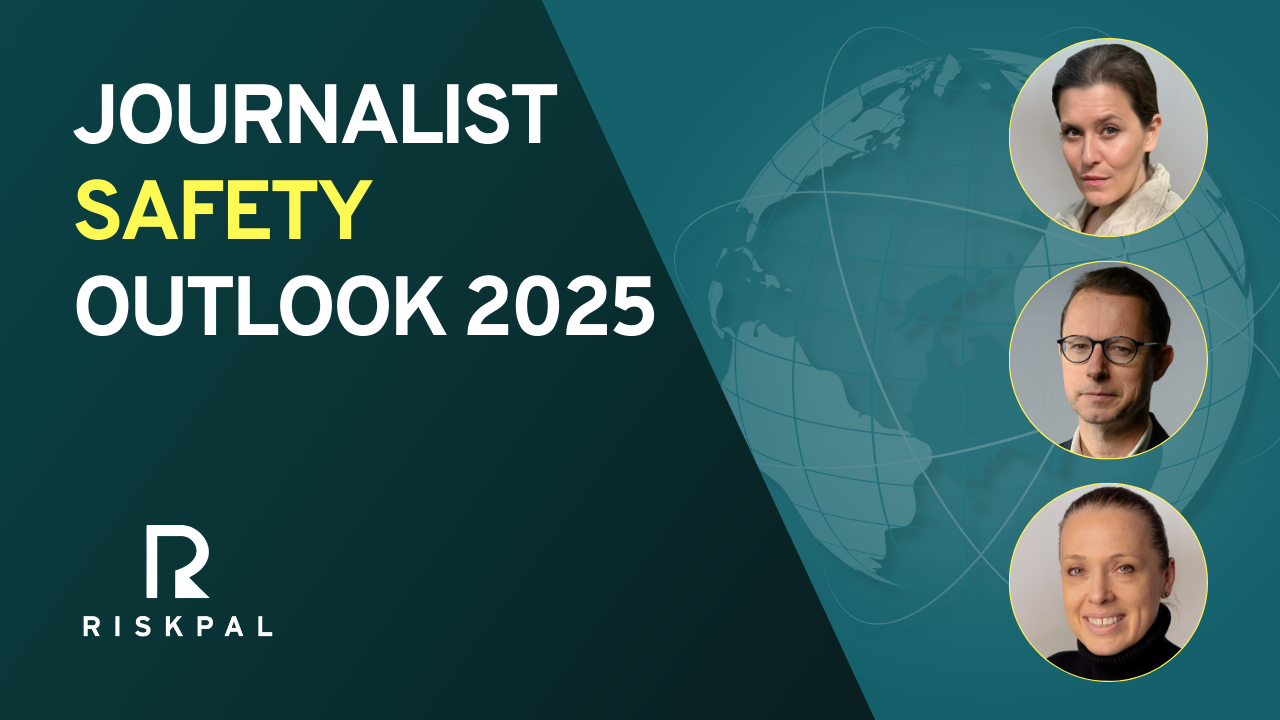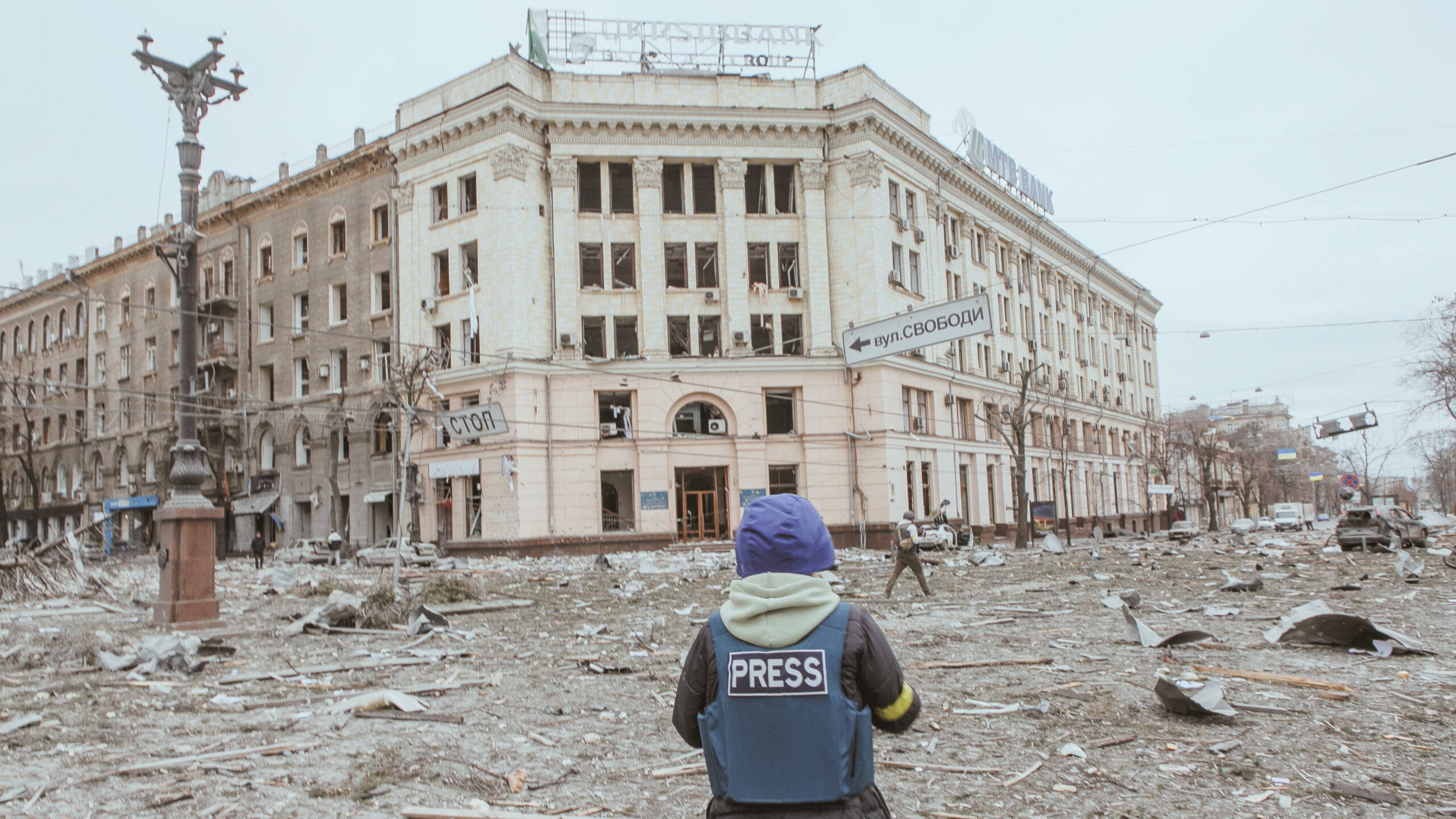Challenges in Geopolitics in 2024: Dr Elizabeth Stephens on Global Risk & Tech
The geopolitical prospects in 2024 are worrying leaders and analysts in every sector. RiskPal asked Dr Elizabeth Stephens, the Managing Director of Geopolitical Risk Advisory to peer into her figurative crystal ball and leverage her data analytical predictors to offer a glimpse into what the upcoming year may bring.
Dr Stephens specialist knowledge spans geopolitical drivers, global trade intricacies, supply chain dynamics, and the intersections of technology and decarbonisation. With a rich background in the insurance market and pioneering cutting-edge risk ratings tools, she offers valuable insights into some of the most imminent risks and their potential ramifications on the global landscape.
Our discussion spanned various critical topics, from ongoing conflicts in the Middle East and Ukraine to the potential implications of a Taiwan invasion, alongside a review of the 2024 global elections, particularly the pivotal United States election. Dr Stephens also shared fascinating insights into the role of tech giants in today’s world and emphasised the overlooked yet crucial dialogue surrounding how ‘green’ electric vehicles really are.
Below, we have summarised the key takeaways of her analysis. Make sure to read to the end to get access to the full interview and look out for her advice to journalists and NGO workers.

“Geopolitical risk is a primary concern for company boards. They are nervous because they feel it is beyond their control, something that they can’t manage or mitigate. But this belief is actually inaccurate.” – Dr Elizabeth Stephens
Navigating Middle East Conflicts in 2024
- Efforts to prevent the Israeli-Palestinian conflict escalating into a wider regional crisis continue. This hinges on two key factors: First, the proactive involvement of the United States in preventing an escalation by bolstering its presence in the region and engaging in diplomatic efforts. Secondly, Iran’s aversion to escalation, leading to it exercising restraint over its proxies. Although sporadic attacks by Yemeni militias on Red Sea shipping or occasional rocket launches by Hezbollah into Israel may persist, these actions are not at scale or directly orchestrated by Tehran.
- The actions of Hamas on 7 October and Israel’s subsequent response are poised to have far-reaching consequences, making a return to the previous status quo improbable. Arab states, including Saudi Arabia, cannot ignore the Palestinian situation moving forward, even as they will likely continue to normalise relations with Israel and demonstrate a collective preference for stability for the sake of economic prosperity.
- Eradicating Hamas is fraught with difficulty – as demonstrated by the US long struggle with al Qaeda/ISIS in Iraq – a potential weakening rather than complete elimination is a more likely scenario. Even if Israel manages to dismantle Hamas, the lesson of history indicates that the removal of one extremist faction does not guarantee the emergence of a less radical successor.
- Due to the Israeli-Palestinian conflict, there is an increased risk for a resurgence of radical Islamic attacks in Western countries. It remains to be seen if intelligence services can effectively contain the threat.
- From a geopolitical perceptive, the West’s support for Israel’s actions in Gaza, juxtaposed with its calls for condemnation of Russian activities in Ukraine, is seen as hypocritical. Continued support for Israel could lead to a loss of Western credibility and influence in the global South, impacting diplomatic relations beyond just the Middle East, and is perceived as benefitting Russia.
Russia-Ukraine Conflict: Staying Power and Economic Shifts
- Russia appears to have greater staying power, resilience and strategic cohesion compared to the West which is backing Ukraine. Russia has shifted its economy onto a full war footing, a move the West has yet to emulate. Ukraine will likely face heightened pressure both militarily and economically as Western support may no longer be unconditional.
- Russia is anticipated to further advance on the battlefield. Ukraine is likely to face a shortage of weapons as Western support falters. Furthermore, Russia demonstrates a willingness and capability to endure significant casualties – an approach Ukraine cannot match, and the West finds unacceptable.
- The outcome of the US elections in November, which may result in a change in the White House, could potentially sway the trajectory of the Russo-Ukrainian conflict this year.
- On the home front, Putin will most certainly secure another overwhelming victory in the upcoming elections. There is no foreseeable internal challenge to Putin’s leadership, given the absence of an apparent successor and Putin’s firm grip over the economy and security apparatus.
Assessing the Likelihood of a Taiwan Invasion in 2024
- The likelihood of a Chinese invasion of Taiwan in the near future is low. Xi Jinping is a pragmatist. He observes Russia’s struggles in Ukraine and understands the military challenge of executing an amphibious attack on Taiwan compared to Russia’s land invasion of Ukraine.
- Unlike Russia or Iran, China holds substantial stakes in the global economy and the existing world order, reducing its incentives for disruptive actions. Consequently, China is inclined toward stability rather than aggressively pursuing territorial gains.
- Despite its global stature, China’s current economic strength is weaker than commonly perceived. This situation is likely to prompt China to continue on a path of cautious rapprochement with the United States.
- In the medium term, Taiwan enjoys a certain level of protection due to the “Silicon Shield”, manufacturing 95% of the world’s most advanced semiconductors. Neither the United States nor China is self-reliant in this crucial sector. An invasion of Taiwan would be the end to the global economy as we know it.
Tech Giants’ Growing Influence in Geopolitics Geopolitics 2024
- The influence and dominance of tech companies, especially social media giants, will only grow in 2024, while attempts to rein in their power and govern new technological advancements, including AI, are likely to meet limited success. Certain tech companies, notably American ones, already operate as independent political actors and the individuals who own and control them wield as much, if not more, power than many heads of state. The way they wield their influence can significantly impact geopolitical outcomes. For instance, given the waning support of Ukraine by its nation state backers, support from tech companies will be pivotal in determining Ukraine’s ability to sustain its war efforts.
- Social media platforms play an unprecedentedly critical role in 2024, a year when 40% of the world’s population heads to the polls. While social media platforms give voice to the masses and enable real-time, uncensored communication between politicians and their followers, they also create a space that can challenge democracies and democratic processes. The storming of the US Capitol on 6 January 2021, exemplifies the potent influence and potential for manipulation of social media.
The Power of Algorithms & How It Is Shaping Reality
- Today, true power resides with those writing algorithms. Their work, more than any other external influence, shapes our reality, dictating our emotions and thoughts. The way algorithms are developed and deployed impacts numerous societal challenges, including the erosion of trust between governments and their electorates and the intensification of polarisation. The current trajectory is troubling as individuals are increasingly confined within information bubbles which stifles political discourse and fosters conditions in which populist and authoritarian figures thrive.
Green Technologies Reality Check: Challenges and Environmental Impact
- China is committed to leading the charge toward a green world order. It has invested more in green technology than any other nation and currently controls major supply chains for essential rare earth metals. The control over these resources is poised to heighten tensions not only between China and the United States but potentially also between China and the European Union.
- Although mining essential resources could potentially revitalise the economies of some nations, the unfortunate truth is that it seldom translates to benefits for workers and local populations. This situation poses significant challenges to human rights and worker rights.
- The green transition itself is far from environmentally clean. The mining of the needed resources is hugely polluting, and developing the required infrastructure entails a substantial carbon footprint. The notion that electric vehicles will save the planet is deeply flawed, if not misleading. Despite being touted as eco-friendly, electric vehicles yield a similar overall carbon footprint to combustion engine cars. This includes not only the extraction of raw materials for their batteries but also factors such as their shorter lifespans and the reliance of countries like Australia and Taiwan on energy sourced from coal-fired power stations for charging.
- Nation states are inadequately prepared to tackle the impending infrastructural challenges of the green transition. Electric vehicles are considerably heavier than their petrol or diesel counterparts, potentially causing significant infrastructural challenges such as the risk of car parks and bridges being unable to sustain the increased weight. Nations are inadequately prepared to tackle this impending issue.
Top Tips from Dr Elizabeth Stephens: Navigating Geopolitical Uncertainties
We gave Dr Stephens a hypothetical scenario: seated at a dinner party, she finds herself positioned beside the head of a news organisation on her right and the head of an NGO on her left – what would she advise them:
If you want to know more about our interview with Dr Elizabeth Stephens and hear her thoughts on the upcoming US elections, the green transition, the potential for violence in the Taiwan Strait, shifts in insurance premiums and supply chains, and much more, you can watch the full video here.
Empowering Safety with RiskPal
At RiskPal, we empower safety and security leaders to drive safety engagement within their organisation. RiskPal is a smart risk assessment platform that streamlines safety processes. We are dedicated to making safety simple and compliance straight forward. Reach out if you have any questions or need assistance in enhancing your safety and risk management processes.



